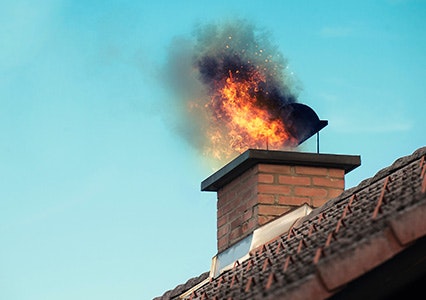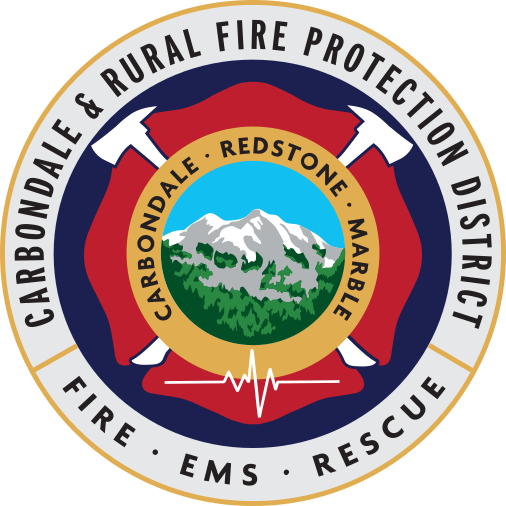Prevent Chimney Fires
By admin Published December 12, 2022

Before you sit in front of the fireplace for the first time this season, have your chimney cleaned and inspected by a professional. The National Fire Protection Agency (NFPA) recommends having your chimney cleaned and inspected by a professional every year before lighting the first fire to be as safe as possible.
Chimney Fires
Wood-burning fires can accumulate a buildup of creosote on the interior walls of the chimney. Creosote is a natural result of the combustion process and is highly flammable. It’s formed from unburned wood particles that create a brown or black sticky, tar-like residue that sticks to the inside of the chimney. It only builds up more over time, so every time you use your fireplace it thickens. Just 1/8 inch of buildup can cause a chimney fire.
Your chimney is not meant to contain fire—only smoke. If there’s a chimney fire, your chimney can crack and break, which may cause the fire to spread to the rest of the house.
Chimney fires can also result from blockages from outside sources. Birds, squirrels, raccoons, and other critters may make their nests in your chimney. These nests are made of flammable materials: fur, feathers, twigs, feces, etc. These need to be cleared out of your chimney before any fires are lit. If you have an uncapped chimney, these blockages may be more common.
Carbon Monoxide Poisoning
When you burn a fire, you are at risk of carbon monoxide poisoning. This is why you should make sure your chimney has proper ventilation and airflow. If your chimney is blocked, toxic gases like carbon monoxide will go back into your home rather than out through the chimney. Carbon monoxide is extremely dangerous. It is known as the “silent killer” because you can’t see, smell, or taste it in the air.
Carbon monoxide poisoning has similar symptoms to the flu: headaches, dizziness, upset stomach, vomiting, chest pain, and confusion. It takes just 1-2 hours to feel these symptoms. If you start noticing these symptoms, it’s very important to leave your house to get fresh air immediately and call 9-1-1. After 3-5 hours of exposure to carbon monoxide, you could pass out or even die.
Prevent carbon monoxide in your house by having your chimney inspected, cleaned, and safe before use.
In addition to smoke detectors, your home should also have carbon monoxide alarms throughout the house that can detect the presence of CO in the air.
If you have any questions or want more information, please contact your friends at the Carbondale Fire District.
